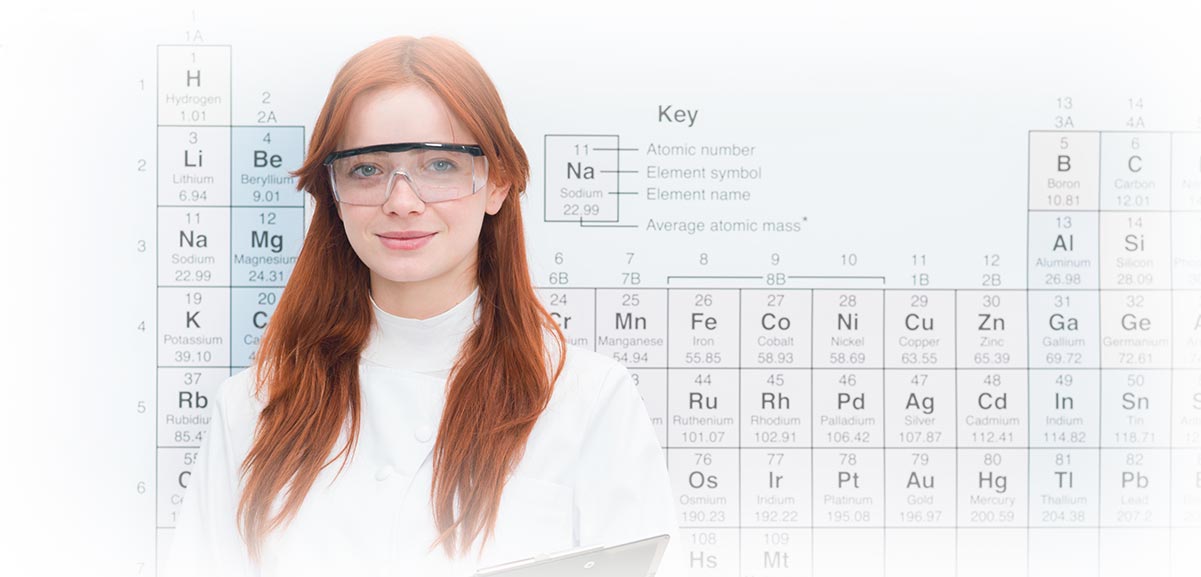ELEMENTAL ANALYSIS
We provides a quick and friendly elemental analysis service for a variety of customers and a variety of sample types. Elemental analysis is a collective term used to describe a number of techniques used in the determination of the elemental composition of both solid samples and liquid samples such as soil, drinking water, waste, bodily fluids and organic compounds. Elemental analysis can be used for the determination of the presence of an element in a sample (qualitative analysis) or the determination of the amount of an element in a sample (quantitative analysis).
Services
-
CHNS analysis
-
Inductively Coupled Plasma Mass Spectrometer (ICP-MS)
-
Laser Ablation Inductively Coupled Plasma Mass Spectrometry (LA-ICP-MS)
-
Ion Chromatography Inductively Coupled Plasma Mass Spectrometry (IC-ICP-MS)
-
Flame Photometry
CHNS ANALYSIS
One of the most common elemental analysis techniques used for organic element analysis is chns analysis. The method uses combustion for the determination of element concentration (mass fraction) which is typically calculated for carbon, nitrogen, hydrogen and sulphur. The chemical formula of organic compounds can be solved for using the ratio of the elements (carbon, nitrogen, hydrogen & sulphur).
INDUCTIVELY COUPLED PLASMA MASS SPECTROMETRY (ICP-MS)
Inductively coupled mass spectrometry is a versatile elemental analysis technique that is typically used for the analysis of trace element impurities such as heavy metals. ICP-MS is a commonly used analytical technique for the detection of elemental impurities in a sample and has a very low detection limit, typically parts per billion and for some elements down to parts per trillion with a linear dynamic range of 9 orders of magnitude. ICP-MS is an ultra-trace analysis technique that can be used for the determination of multiple elements and their respective isotopic abundance within a sample (e.g. the determination of arsenic in a food sample).
LASER ABLATION ICP-MS (LA-ICP-MS)
Laser Ablation ICP-MS is a mass spectrometry imaging specialist micro destructive elemental analysis technique used to determine the composition of solid samples. A powerful laser is used to atomise minute quantities of the sample which is then analysed with ICP-MS. The technique requires minimal sample preparation and can be highly sensitive. The method can be used to map the concentration of elements on the surface of the sample by scanning the laser across the sample.
ION CHROMATOGRAPHY INDUCTIVELY COUPLED PLASMA MASS SPECTROMETRY (IC-ICP-MS)
Ion exchange chromatography is a versatile analytical technique that separates ions and polar molecules in a solution (mobile phase) based on their affinities for an ion exchange column (stationary phase). When ion exchange chromatography is coupled with ultra trace analytical methods such as indcutively coupled mass spectrometry it creates a powerful tool for speciation analysis.
FLAME PHOTOMETRY
Flame photometry / spectroscopy is a form of atomic emission spectroscopy and is a simple yet powerful elemental analysis technique for the detemination of sodium, potassium, lithium and calcium in solution at a detection limit of parts per million.




